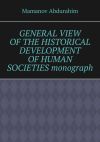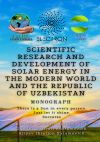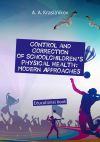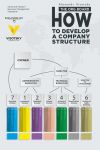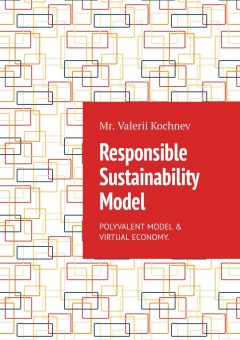
Автор книги: Mr. Valerii Kochnev
Жанр: Философия, Наука и Образование
Возрастные ограничения: 12+
сообщить о неприемлемом содержимом
In this context, the lack of information exchange between various parties and the destruction of the positive impact of high technology development on economic growth, especially the lack of cooperation in high technology development, are becoming more and more noticeable. In addition, the dominance of the service sector and its high level of employment, which is not very sensitive to automation and new technologies, will increase. In parallel, the cost of labor will increase due to the cost of technological development, which in turn requires an organised, educated and well-managed workforce, and the replacement of labor by capital will increase. In addition, the cost of education, research and development will increase, given the dominance of applied research in higher education. At the same time, the slow pace of technological progress in the field of information technology and the dominance of existing technologies will further reduce the speed of progress. Lack of financial resources and a tough economy that is not very sensitive to new technologies will continue to be a problem.
Our current socio-economic model is based on the system of exploitation of the industrial society based on the following three principles:
1. Every person has an equal right to happiness.
2. Every person has an equal right to equal use of the Earth’s natural resources.
3. Any consumption is justified if it leads to happiness.
For a long time, more than a hundred years, the modernisation of industrialism and its socio-economic model were based on these three principles that are still valid today, which are the basic foundations of the current system.
This model brought with it a number of fundamental lifestyle changes and had a significant impact on the way we live and think. For example, it changed the way we conceptualise land and began to treat it as a resource that belongs to us residents. As a result, we began to treat ourselves as owners of the land, giving us a sense of ownership of the land.
This socio-economic model is based on an unsustainable imbalance (economic and financial, social and political) that is collapsing. Unsustainable consumption and useless production, uncontrolled consumption and underconsumption, over-infrastructure and under-infrastructure, the gap between rich and poor, overconsumption, lack of opportunity and choice, lack of time and choice, lack of health and security are all becoming more and more evident. Over the past few years, we have constantly lost opportunities because we do not use them. There is growing dissatisfaction with the government largely due to unmet needs, worsening social and economic problems, and a lack of trust in political institutions and leadership, resulting in citizens becoming increasingly dissatisfied with the government and losing trust in the government. As a result of a radical reshuffle in the established political, economic and ideological systems of society, the established power structures are under attack from all sides.
It is positive that in all this, the world has recently experienced a technological revolution associated with the advent of the information age, thanks to which others can learn from others and have access to technology via the Internet, where the whole world is a virtual laboratory, and knowledge is available to everyone. Now even the most isolated countries have access to the outside world through the Internet and satellite portals.
3. Progress and contradictions
The world is unfair, but progress is not inevitable. Society must develop in a sustainable way, there must be basic rules and obligations that must be observed.
Progress cannot be resisted. Progress is a broad concept, it is not only what is productive, but also what can be destructive. Progress is a great word, but at the same time history shows that progress is a form of violence. The concept of progress is not just an idea, it is a complex and controversial concept. Progress is a double edged sword, progress is a value that propagates to variables. Progress can be good or bad. Progress is the basis for the birth of new ideas, progress is the basis for the birth of changes and new opportunities. Progress is the root of social inequality, social exclusion and social violence. As a result, the notion that we can control progress is a delusion. We must ask ourselves the question: Do we need progress and do we need development in general of everything that surrounds us?
In ancient Greek philosophy, there are two concepts: being and becoming. Being is that which is eternal, and that is actually what is most important. And becoming is secondary, changeable. And that’s how much being is in becoming, so becoming is so good. That is, development in itself, it in itself is not a fact that is good. If this change from something to something contains more of the eternal, then it is good. If there is little eternal in him, then this is no progress, this is actually a regression. And the development of Western political thought and, in general, Western philosophy has come to the point that in modern times, being as such is generally discarded, and good or bad is already within this becoming. What is it about: everything from which development comes is good, more precisely, everything from which it is bad, and everything to which it is good, that is, everything that was yesterday is necessarily bad, everything that will be tomorrow is necessarily good. Because progress itself has become a religion. Progress itself has become eternal, we believe that any qualitative change is necessarily progress, although a qualitative change can be a regression. We can move from something to something and go down. But there are social relations in which there should be no changes, that there are things, primarily related to ethics, which are based on such transcendental truths that should not be revised. The new socio-economic model should be sustainable, equal and fair, and Western civilisation says that everything should be reviewed constantly. This permanent revision makes the current socio-economic model even more unstable and is almost in a state of collapse.
4. Green sustainable development. Story. Popular groups. Goals and means of achievement
There is a need to revisit the ancient Greek concepts and introduce new most important modern meanings into being. While green projects are virtually unheard of, this does not mean that green sustainable development is gone forever. There is no doubt that sustainable development is an objective necessity. This is something that will continue regardless of how current global events play out now or in the future.
The term «green sustainable development» was first used and coined by Professor Michael Charles Tobias, President of the non-governmental organisation Green World Campaign between 1984 and 2003. In August 1987, Gro Harlem Brundtland, in its report to the UN, first used the term «sustainable development» as «development that meets the needs of the present without compromising the ability of future generations to meet their own needs» in the context of what is now called the «green economy».
The principle of sustainable development was further defined and developed after the publication of the Brundtland report and in 1992 was included in the Rio Declaration on Environment and Development. Further, the Green Sustainable Development (GSD) concept was developed by Professor Kwon-Soo Ha in 2002 as an approach to clean energy and an alternative to fossil fuels to achieve sustainable development. Professor Kwon-Su Ha believed that at the beginning of the 21st century, humanity faced a serious crisis in the control of global warming and it was time to create a new global system of sustainable development. However, Professor Kwon-Soo Ha noted the excessive use of the term «green», when everything that is green is considered good, and any movement of green is considered progressive. First of all, due to such a misunderstanding of the meaning of the term «green», various interpretations and not entirely correct use of this term were formulated, which, according to Professor Kwon-Su Ha, became problematic. In 2003 in New York City, the GREEN TIDE conference participants were introduced to this idea and decided to use the concept of green sustainable development in an existing global network of projects.
Green and sustainable development creates a pyramidal structure of the population, where the top layer of this structure is occupied by people involved in green sustainable development, who follow an appropriate lifestyle. The second level is occupied by people who support sustainable green development through their purchasing, advertising and promotion decisions. The third level is occupied by people whose lifestyle is complemented by the lifestyle of sustainable green development, but are not yet part of the undertaking. The fourth level is occupied by those who did not choose this way of life, but were influenced by it. The fifth level is occupied by those who have learned about the existence of green sustainable development and have accepted its characteristics. The sixth level is the base of the pyramid and the people who were not affected in any way.
Green communities are a response to the urgent need of mankind to unite around a common concern for the environment and a sustainable future, as well as finding a balance between economic growth and the relationship between man and nature.
Achieving such a goal requires not only the support of governments, private business and the general public, but also a clear understanding of the problems and the need for action. An important mechanism for communication and involvement is the presentation of green communities as new ideas and concepts, models that deal with issues of sustainable development and environmental conservation.
For a long time, the solution to the problem of sustainable development was: «More research is needed.» The solution for green sustainability sustainability is to act on what we know and don’t need to explore.
The solution to the problem of sustainable development lies not in additional research, but in the implementation of what we already know and what does not need to be researched.
«Green sustainable development» is the concept of solving the problem of sustainable development in the 21st century.
Ecosystems provide a wide range of «goods» for human well-being, including clean water and air, food, medicine, and recreation.
The health of ecosystems also affects human well-being. Ecosystem goods and services are often interconnected, so that a change in one can affect many others. For example, the destruction of forests to provide more pasture for livestock reduces the area of land available for cultivation, thereby reducing food production, which contributes to food insecurity, and the fall in food production contributes to deforestation, and so on.
Industrial activities create waste and pollution that adversely affect ecosystems. For example, mining, metallurgical and industrial activities release heavy metals into the environment. These heavy metals can be toxic to humans and animals, damage ecosystem health and destroy biodiversity.
Controlling the negative impacts of human activities on ecosystems and restoring degraded ecosystems is necessary to sustain ecosystem goods and services. This includes the sustainable use of natural resources and the restoration of degraded ones.
The isolation of the world as a whole and the multiplication of restricted areas do not create a single investment space, they create an investment gap that cannot be filled without a unified innovative infrastructure. The absence of a unified global infrastructure for the formation of an open investment space inevitably leads to the preservation of backward technologies, low efficiency and environmental destruction. Global supply chains are breaking down, which does not allow the creation of modern logistics, production and supply technologies, as well as artificial intelligence, cloud computing, communications and other digital technologies. This is what creates a gap between developed and developing countries, which is then used as an excuse for unfair trade, sanctions, trade wars and other negative phenomena. The lack of effective solutions for the interaction of disparate parties leads to completely unpredictable behaviour on the world stage.
A significant change from past environmental efforts is the need to innovate, to create a new social order that will lead to a different and better future. The change will be influenced by the development of «green» industries, «green» enterprises and services, as well as the creation of «green» jobs and issues of «green consumerism», developing channels of communication with business and consumers.
5. New philosophy. Concepts. Goals and main aspects
Formation of a new philosophy of green sustainable development, which is a system of concepts and ideas, including an internal and external structure to ensure sustainable development, based on a number of philosophical positions and principles, such as:
1. Faith in humanity and the environment, which can be realised through innovative and sustainable technologies.
2. Rich cultural diversity that promotes human creativity and enriches the social fabric.
3. Belief in basic universal values (human rights, democracy, tolerance, freedom, equality and justice) as the main source of legitimacy, as well as in a socio-economic system based on the principles of humanism.
4. Belief in moderate consumption as the key to reducing social and economic inequality.
5. Belief that the environment and sustainability are the foundation of both economic growth and sustainable development.
6. Belief in the free market economy as the best socio-economic system for achieving sustainable development and in the market as a source of inspiration for finding the most effective means of improving the economy and reducing environmental impact.
Green and sustainable development is not only a matter of science and technology, but also a matter of spiritual civilisation and the wisdom of the human spirit. This can be considered the basis and root of all remarkable achievements and progress in science and technology. It has never been possible to develop science and technology without adopting the philosophy of green development or hoping for the acceptability of the spirit of green and sustainable development. Then there will be no room for regrets.
In addition, we must not forget that green and sustainable development is a subjective human project. All of its various goals cannot be achieved without a consensus among various stakeholders, which must be constantly built up through various actions of administrators and developers in order to bring about global change. Whether or not there is agreement with the above opinions and values, they exist to provide us with a vision and a framework for the future of humanity. Emphasising the importance of coexistence, cooperation and harmony between people, a new set of values and a new philosophy are proposed.
It is a philosophy based on environmental ethics, environmental law, environmental philosophy and environmental economics, with the environment being one of the most important factors in the development, production and consumption of goods for the well-being of the entire planet.
The main goal of the philosophy of sustainable development is to provide a better world for all people on our planet, the sustainable harmonious development of the ecosystems of the Earth and humanity, to create a comfortable and safe living environment for humans, not for the benefit of a few, a few people or for the benefit of one particular social class, but for the benefit of the whole society and all people in general, for prosperity for all nations. Ecosystems provide the natural resources and services on which human life depends. Human survival depends on these ecosystems.
The philosophy of green sustainable development covers the following main aspects:
1. Strategic, fundamental, theoretical and scientific foundations of sustainable development;
2. Philosophical and ethical foundations of sustainable development;
3. Scientific, theoretical and practical understanding and understanding of the principles and originality of green sustainable development.
This is a philosophy that all people, all nations, all groups and all institutions must adopt, based on their experience and their consciousness, on the result of their aspirations to build a green and sustainable world order.
In this sense, green sustainable development represents a way of thinking for the 21st century and the future in accordance with green sustainable principles.
This is an ethically correct form of behaviour, human thinking and a form of relations between people, between people and the world community, between people and the Earth, between people and the Universe. The current strategy of green and sustainable development, used by mankind in the last two centuries on a global scale, has proved to be ineffective in terms of economic, social and environmental aspects, which has become the main reason for the current critical situation in which we live. A radical fundamental shift in the approach to green and sustainable development is required, which can be achieved through social re-education, since this is one of the most important factors in this process, but also one of the most difficult factors to implement. The need for social re-education stems from the complexity of the process called the green and sustainable development strategy, in which the importance of knowledge and the role of learning are decisive factors. Therefore, the need to develop a strategy for green and sustainable development can only be achieved in the process of learning and generalising the knowledge gained.
When people begin to live as one family, with a common goal, to work for the benefit of all Humanity, for the benefit of all forms of life, then the planet, its people will be saved. It is a long and difficult path, which is based on green and sustainable development for socio-economic progress, to achieve an optimal state of society, and all this is in perfect harmony with the transformation and organisation of the Earth into a highly comfortable environment for the benefit of the planet as a whole. We can be sure that the most difficult stage is ahead. To achieve green sustainable development, you need to focus on three important things:
1. To make people fully aware of the seriousness of the environmental problem of our planet.
2. For people everywhere to recognise the benefits of living in harmony with nature and preserving the environment.
3. So that people can change the current state of affairs and change the way they think and act.
This can be achieved and humanity has everything that is required for this.
6. Green economy. Values. Ideas. New culture and development of society
The main value of green sustainable development is the emphasis on the rational use of the natural and environmental resources of the planet. It is based on the idea of managing and using the natural environment in such a way as to always maintain it in a useful and reproducible state, preserving the natural environment and preventing its use in which any damage can be done to it. The emphasis is on allocating much more human and financial resources to improve the quality of people’s lives, and not just on simply increasing the amount of material wealth. It is also based on the idea of creating an economic system aimed at creating a better standard of living for people, and not just looking for maximum profit margins for the benefit of a small part of the world’s population.
The green economy is very different from the market economy of the welfare state under capitalism. The green economy is based on a completely new economic paradigm, which is based on the ability to support technological progress without adversely affecting the natural environment, keep nature healthy and vital, reduce the dominance of the economy over society as a whole, and subordinate the economic system to the needs of society and progress in general. When it comes to the preservation and protection of the environment, it is necessary for the survival of mankind. Life is impossible on a dead planet, and the death of the planet means that humanity will perish along with the planet. When we talk about environmental protection, there are no political, ideological or philosophical differences on this issue. At the same time, «Green, sustainable development» means the materialisation of an integrated approach in all aspects of life to promote green and sustainable development in various fields, provides a common basis for mobilising the launch of global changes to achieve the ultimate goal of green sustainable development at all levels. There is no doubt that one of the main elements of sustainable green development over the years has been the task of developing the material resources of the planet in a way that will allow people to live as comfortably as possible, achieve the greatest freedom with the least effort to engage in intellectual and creative growth, create a new culture of technological development and not just satisfy your hunger or satisfy your random whims. There should be a common criterion for evaluating different projects when it comes to development approach, and it should not be based solely on economic criteria for evaluating different projects. The economic system should not focus on the consumerism that occurs at the level of saturation.
The essence of development at present is creative work on intellectual, spiritual and material culture. The development of intellectual and spiritual culture, in which a person is immersed for his own benefit, is the most important component of the development of civilisation and the world.
The development of material culture is also the most important component of the development of civilisation and the world, since it is impossible to imagine the development of civilisation and the world without a developed material culture.
For many years we have been accustomed to thinking about development in material terms, but today we see that all-round development is impossible without comprehensive work to improve intellectual, cultural and spiritual development.
We must strive to create a culture of humanity in the world in which the human person can develop to his or her greatest potential.
The development of intellectual, spiritual and material culture is a tool for improving the quality of life of all people on our planet.
Green sustainable development can help the development of society, since it is about the development of the economy and the environment at the same time, and not in conflict with each other. It should be seen as a generator of the creative economy and a generator of sustainable development. This is necessary because green sustainable development is in crisis and needs to go through a process of rethinking its principles and mechanisms to achieve its goals.
There is a very big concern that sustainable development without green elements will never be able to achieve its real goals, ensure sustainable development and there is a need for a new common vision of sustainable development in the 21st century. Green sustainable development is proposed to become the basis of sustainable development in the 21st century.
The concept of green sustainable development does not aim to promote any particular ideology. This concept, based on the principles of democracy and social justice, has been applied in various sectors, including the environment and business, civil society and government, disaster relief and recovery, finance and investment, as well as in the media and communications. The concept can be used to coordinate the efforts of various organisations and individual countries in the field of sustainable development. The theory of green sustainable development is also applied in academic research at a number of universities and is considered a component of sustainable development. For example, the Hong Kong Green Sustainability Institute is a non-profit organisation that promotes and implements green sustainable development. There are a number of other green sustainable development methods to promote the development of the Earth into a highly comfortable environment for people, using it as a source of resources for the benefit of people, human activities for the benefit of man as part of the global community – all this is in perfect harmony with the construction of the earth.
It is the philosophy of green sustainable development that represents the belief that we are entering a new world where the convenience of life and the quality of life on Earth, as well as the set of open problems of sustainable development, are the content of a new sustainable world order, firmly based on appropriate principles to achieve its goals.
